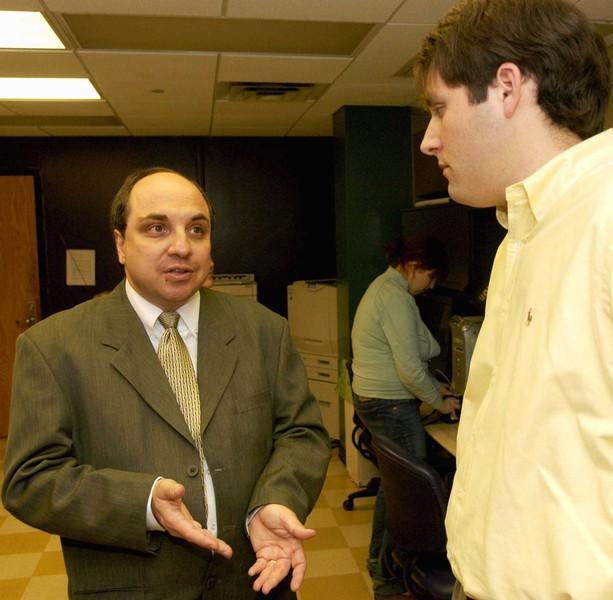An Israeli press official spoke to students yesterday about foreign press coverage of the Middle East and answered questions about the conflict in the region, saying the path to peace is an end to Palestinian terrorist attacks.
David Baker, senior foreign press coordinator for Israeli Prime Minister Ariel Sharon, talked to Tigers for Israel — a pro-Israel student organization — about media coverage he said he considers slanted or unbalanced at times. He also spoke about current issues in Israel, such as the construction of a fence around the West Bank.
Israel, a Jewish state, has been in conflict for many years with the Palestinians, an Arab people who reside in two areas in Israel: the Gaza Strip and the West Bank. In this conflict, Israel has stationed troops in predominately Palestinian areas, and Palestinian factions have implemented suicide bombings.
Baker, who has been working in the Prime Minister’s office for the past five years, said he deals with the foreign press everyday.
He said his job is to make available for press outlets information and responses from the Israeli government about day-to-day occurrences regarding Israel.
There are at least 400 permanently stationed journalists working in Israel, and Baker said there can be up to 2,000 during times of heightened activity.
Baker outlined several problems he faces with the coverage of the Middle East conflict.
“Preconceived notions are detrimental to Israel,” Baker began.
In response to a student’s question, Baker said he does not think journalists begin a story with an agenda slanted one way or another.
But many times, journalists are looking for a bigger story and report what is more “vivid,” he added.
Baker explained that he worries about his 16-year-old daughter traveling alone in Jerusalem but that it is not a story. Instead, the images so many people see are of an Israeli tank outside of a Palestinian village or an Israeli soldier in a Palestinian town.
He said the Israeli government puts a lot of resources and effort into stopping terrorist attacks, but there is no way to photograph the prevention of a suicide bomber.
“How can you photograph something that hasn’t happened?” Baker asked the group.
Baker said the Israeli government makes every effort to “market” its point and make it visible in the world press.
“We can’t always get people to agree, but we can try to get them to understand,” Baker said.
Because of Baker’s position, he was able to answer students’ questions about more than the press he deals with on a daily basis.
He described Israel as “a nation that craves peace.”
Baker said that since Palestinian terrorists began attacking Israeli civilians, more than 155 people have died.
Students asked about a structure — made of wire and cement that Baker calls a fence, but many others call a wall — that the Israelis are constructing along the border of the West Bank.
Baker said the structure, which he described as 95 percent metal barbed-wire fence and 5 percent concrete wall, was constructed as a means to halt terrorists.
“It’s not by chance that since the construction of this fence, the terror has decreased by 80 to 85 percent,” Baker said.
Edward Shihadeh, criminology associate professor, recently saw pictures of the structure from when his father traveled to Israel.
“It’s really sad,” Shihadeh said. “A sad, sad, hideous sight that, at a time when we’re trying to find ways to live together, they decided to build this wall.”
Baker said the way to peace is for Palestinians to cease terrorist attacks.
“The obstacle towards progress to peace starts and ends with Palestinian terror,” Baker.
While Baker said the structure is necessary to prevent more civilian deaths, Shihadeh said it “snakes on forever” and prevents Palestinians from traveling within the country and away from many necessary resources.
“That would be like all of the Americans east of the Mississippi trying to control everyone west of the Mississippi,” Shihadeh said.
Israeli official discusses press with students
April 8, 2005
David Baker, senior foreign press coordinator for Israeli Prime Minister Ariel Sharon, visits with Scott Sternberg, editor-in-chief of The Daily Reveille, to talk about the ethics of Middle East ethnic representation in the international media.
Israeli official discusses press with students




